Publications
Articles, publications, books, tools and multimedia features from the U.S. Institute of Peace provide the latest news, analysis, research findings, practitioner guides and reports, all related to the conflict zones and issues that are at the center of the Institute’s work to prevent and reduce violent conflict.
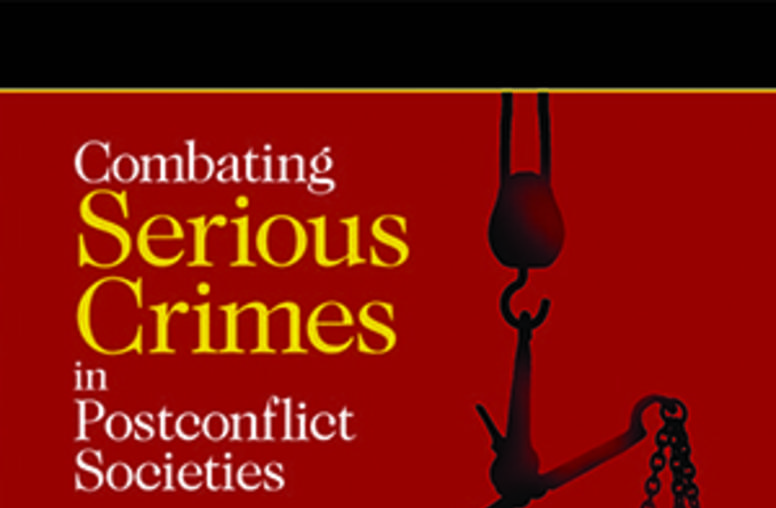
Combating Serious Crimes in Postconflict Societies
The Serious Crimes handbook is a reference tool for policymakers and practitioners who are designing strategies for tackling serious crimes in postconflict environments.
The Internet, Transnational Networking and Regional Security in South Asia
Analysts have raised the possibility of increased turbulence in the world system as the flow of information becomes democratized, as information becomes broadly available outside previously narrowly defined areas of expertise, and hence, as hierarchies tumble. Others have focused on the impact on military security of the increasingly sophisticated means available to both rival states, as well as groups that challenge states, for changing and disrupting the flows of information and the informa...
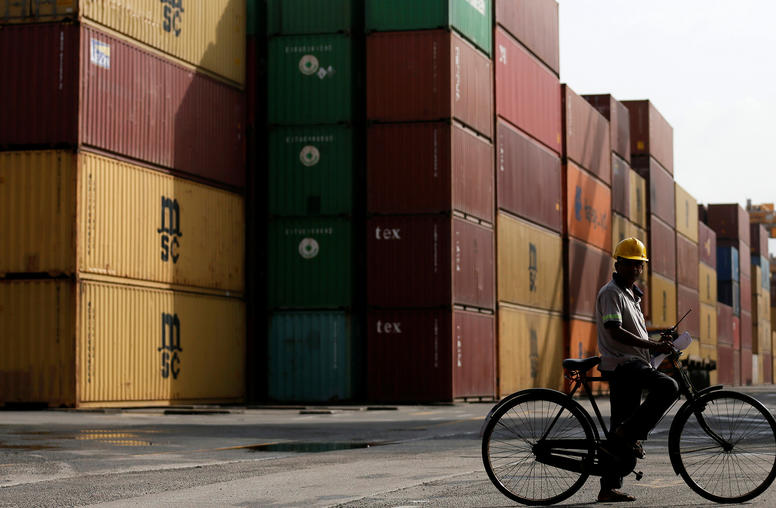
China’s Engagement with Smaller South Asian Countries
When the government of Sri Lanka struggled to repay loans used to build the Hambantota port, it agreed to lease the port back to China for 99 years. Some commentators have suggested that Sri Lanka, as well as other South Asian nations that have funded major infrastructure projects through China’s Belt and Road Initiative, are victims of “China’s debt-trap diplomacy.” This report finds that the reality is...
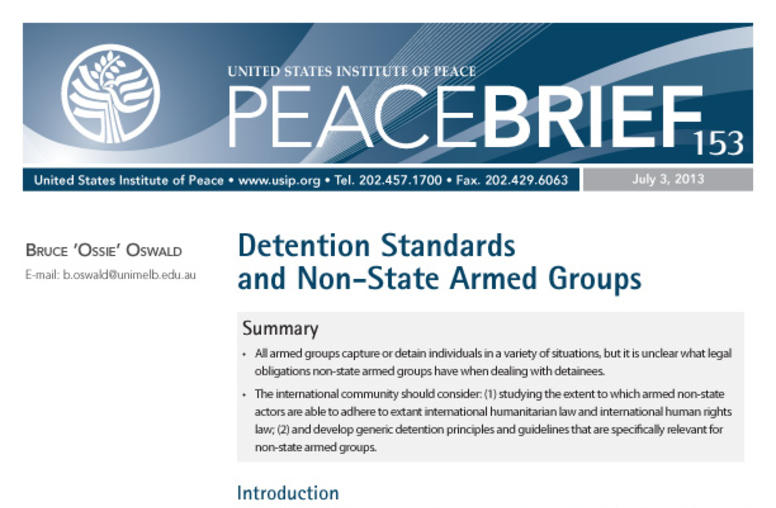
Detention Standards and Non-State Armed Groups
All armed groups capture or detain individuals in a variety of situations, but it is unclear what legal obligations, if any, non-state groups have when dealing with detainees. Bruce Oswald explores this question and the challenge of getting non-state groups to respect basic detention standards.
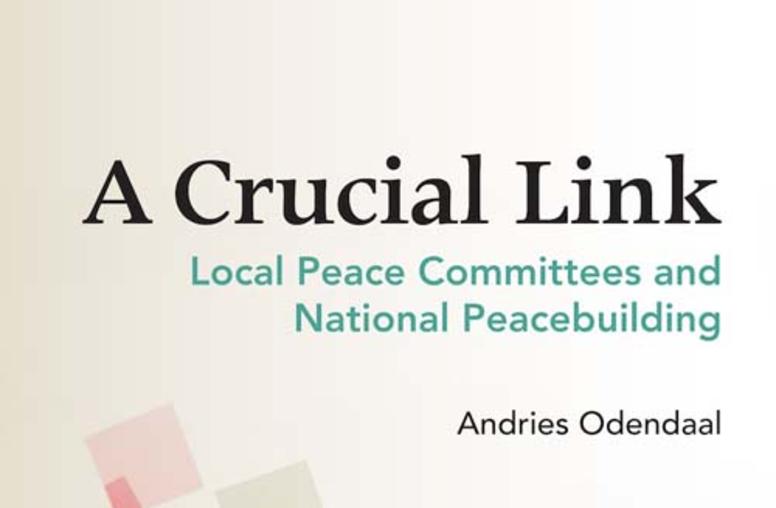
A Crucial Link
In places as diverse as South Africa, Northern Ireland, and Nepal, negotiators of national peace plans have for years sanctioned the creation of local peace committees (LPCs) to address community-level sources of grievance and thereby to build peace from the bottom up. In A Crucial Link: Local Peace Committees and National Peacebuilding, longtime practitioner Andries Odendaal engages in the first comparative study of LPCs and asks whether and where the committees have succeeded.
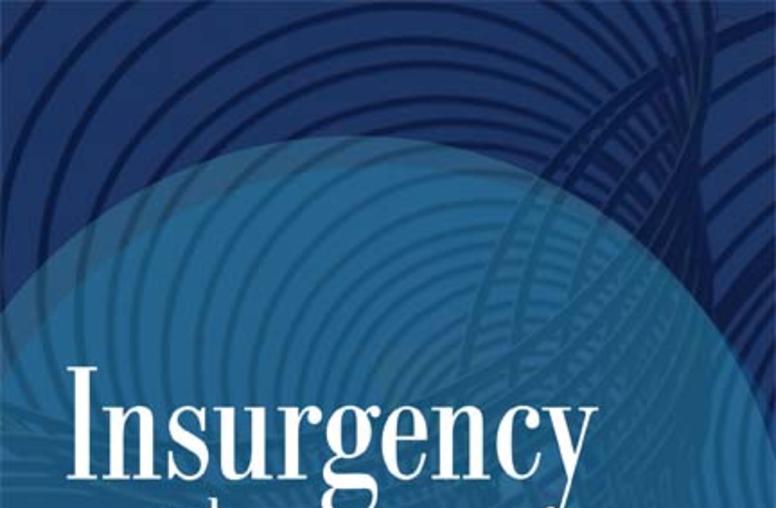
Insurgency and Counterinsurgency in South Asia
In Insurgency and Counterinsurgency in South Asia, ten experts native to South Asia consider the nature of intrastate insurgent movements from a peacebuilding perspective. Case studies on India, Pakistan, Nepal, and Sri Lanka lend new insights into the dynamics of each conflict and how they might be prevented or resolved.
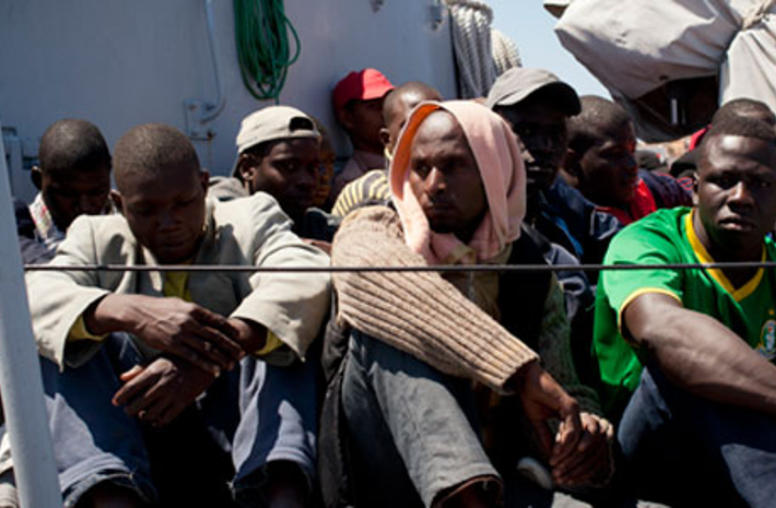
Truth Commission Digital Collection
The United States Institute of Peace’s Truth Commissions Digital Collection is part of the Margarita S. Studemeister Digital Library in International Conflict Management. The collection contains profiles of truth commissions and substantive bodies of inquiry from nations worldwide - offering general background information on the composition of each body, links to the official legislative texts establishing such commissions, and each commission's final reports and findings.
Transitional Justice in Nepal: A Look at the International Experience of Truth Commissions
Amid the run-up to the Constituent Assembly elections scheduled for November, Nepal's government has prepared a Truth and Reconciliation Commission Act. The Truth and Reconciliation Commission (TRC) is the most prominent of several commitments made during the peace process to promote transitional justice following Nepal's more than 10-year civil war.
Constituent Assembly Elections and Security in Nepal
What are the security challenges Nepal faces in the run up to the November 2007 constituent assembly elections? Lack of resources, the need for training and retraining, violence in the Terai (plains), and increased crime and lawlessness are only a few of the challenges identified through a series of meetings and group dialogue sessions held by USIP.
Violence in the Terai Region and the Madhesi Movement: Prospects for Peace in Nepal
Despite marked progress toward peace and democracy in Nepal, the Terai region, located in the southern lowlands of Nepal near the border of India, has experienced a surge in violence in last six months. What are the prospects for peace in Nepal?